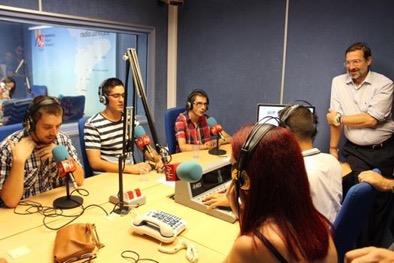Adding a university degree to job placement
- Organization
- Tempe
- Country of Implementation
- Spain
- Region
- Europe
- Subregion
- Western Europe
- Start Year
- 2015
- First published
- 31.01.2017

Solution details
People
“This programme is going to provide me knowledge on how to be a good shop assistant, and I will be able to work and be more autonomous.” Davinia, a 23-year-old programme participant and student at Miguel Hernández University
Problems Targeted
There are very limited opportunities for young people with intellectual disabilities to receive an adequate education and focused preparation to enter the Spanish job market. Most job offers are for manual labour, and do not provide an opportunity to advance to a higher career position.
Solution, Innovation and Impact
For many years the company TEMPE, which is active in the shoe and fashion business, has run a dedicated training programme for people with intellectual disabilities, in cooperation with the service provider APSA. Beginning in 2015, these two organizations have entered a collaboration with Miguel Hernandez University, which currently offers theoretical and practical courses for 15 students with intellectual disabilities each year. The possibility of a university degree combined with the use of university services and infrastructure has elevated people with intellectual disabilities to a new level and has significantly promoted their integration into the open labour market. Following graduation, alumni will find employment primarily in the shoe and fashion industry. Prior to their cooperation with the university, TEMPE and APSA trained 24 people with intellectual disabilities. Seven of these have found employment: three in the open labour market and four in a protected environment. Both companies expect that with the university collaboration, employment figures will increase substantially, since the preparation is focused on the needs of the potential employers.
Funding, Outlook and Transferability
The overall costs in 2015 were €30,000. TEMPE covers approximately 50 per cent of the cost of the programme, the university contributes 15 per cent, and 35 per cent is covered by the graduates themselves.
Media
Related information
- Connections
- 2
-
Organization
- People